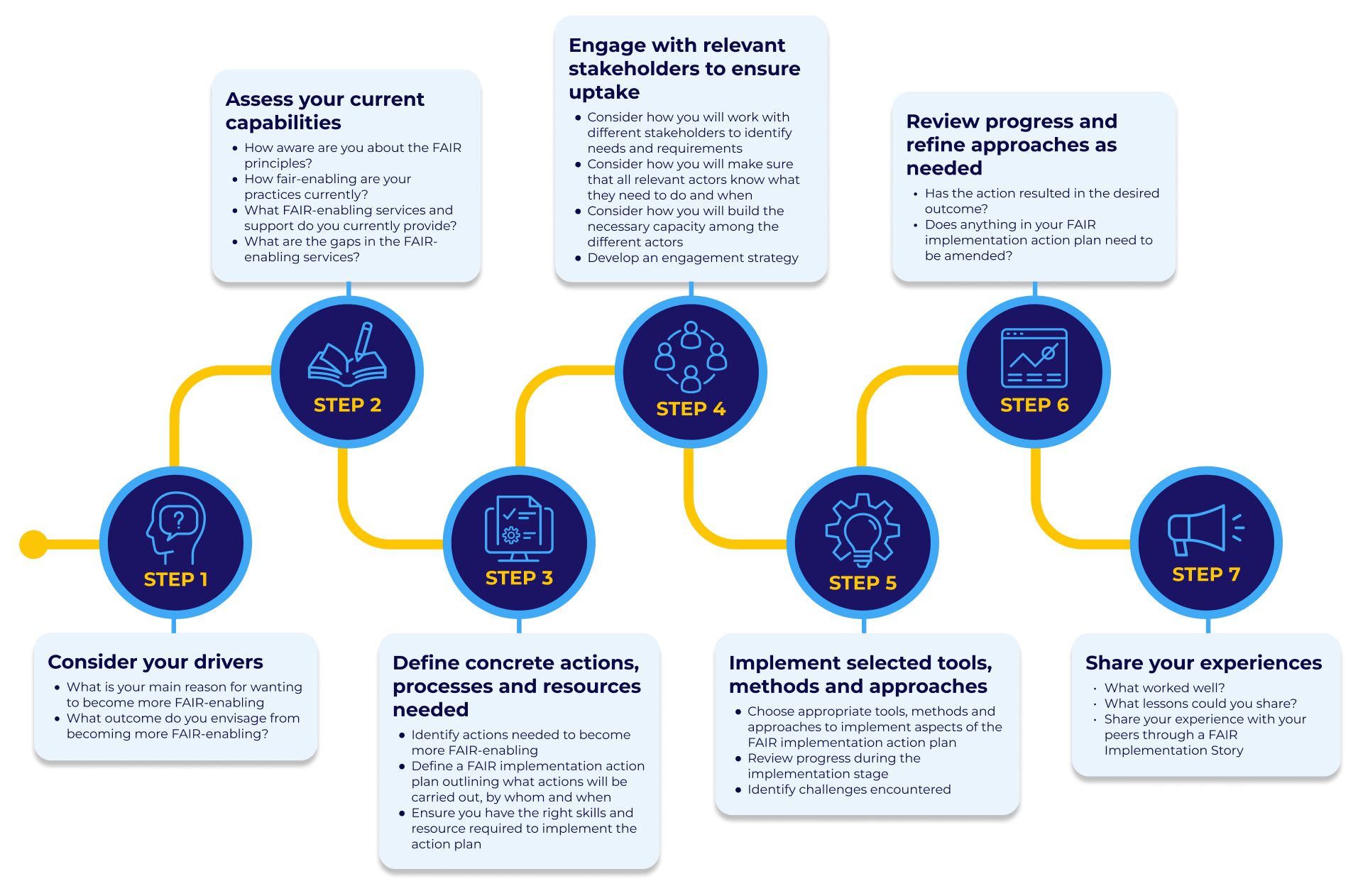![]() To support the adoption and implementation of existing and emerging tools, methods and resources, FAIR-IMPACT has developed the FAIR Implementation Framework (FIF) to help different stakeholders assess their drivers for becoming (more) FAIR-enabling and their current practices so that they can develop realistic action and engagement plans to implement FAIR.
To support the adoption and implementation of existing and emerging tools, methods and resources, FAIR-IMPACT has developed the FAIR Implementation Framework (FIF) to help different stakeholders assess their drivers for becoming (more) FAIR-enabling and their current practices so that they can develop realistic action and engagement plans to implement FAIR.
 The framework illustrates that while the implementation of specific tools and methods is crucial for enabling FAIR, it is equally important to consider other factors that will will impact on the overall success of FAIR-enabling efforts. To this end, the FAIR Implementation Framework adapts the approach introduced by the ACME-FAIR methodology which places an equal emphasis on assessing capabilities for enabling FAIR and on active engagement to ensure uptake of FAIR-enabling practices. The diagram below introduces the seven components of the FIF and provides a set of guiding questions that stakeholders should consider at each stage.
The framework illustrates that while the implementation of specific tools and methods is crucial for enabling FAIR, it is equally important to consider other factors that will will impact on the overall success of FAIR-enabling efforts. To this end, the FAIR Implementation Framework adapts the approach introduced by the ACME-FAIR methodology which places an equal emphasis on assessing capabilities for enabling FAIR and on active engagement to ensure uptake of FAIR-enabling practices. The diagram below introduces the seven components of the FIF and provides a set of guiding questions that stakeholders should consider at each stage.

Participants in FAIR-IMPACT's in-kind support programmes were introduced to the FAIR Implementation Framework (FIF) and provided with instruments to help them work through the stages.
- The support programme for Research Performing Organisations made use of a FAIR-enabling self assessment and planning workbook which covered the FIF steps
- The support programme for Repositories and Data Service Providers made use of several instruments covering the FIF steps:
Read the FAIR Implementation Stories that particpants prepared to share their experiences.
The FAIR Implementation Framework Catalogue of Resources
A key component of the FIF is a catalogue of resources to share existing FAIR-enabling tools, approaches and solutions that are available to support FAIR Implementation in a practical sense. The catalogue is built as a browsable online tool which users can use to identify the tools/solutions most appropriate for different use cases, with direct links to the original resources, or to the source online reference where the tool/resource is hosted.